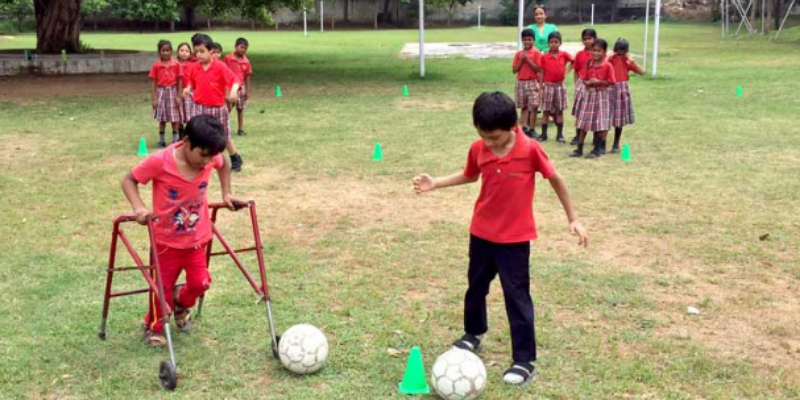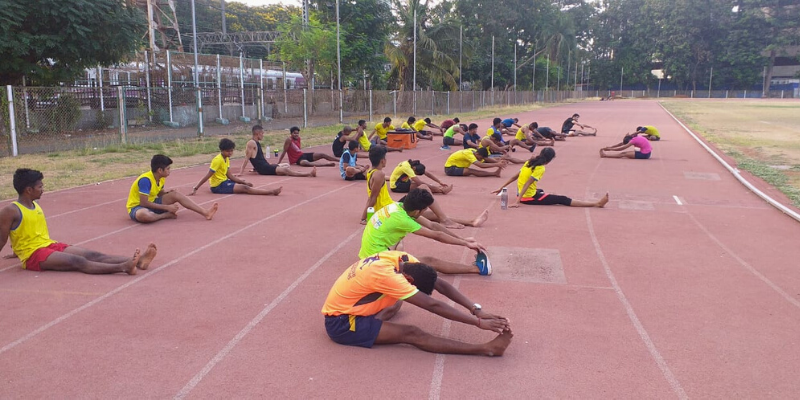
As you consider the educational opportunities for today’s youth in India, the role of organised sports merits close examination. With rising rates of obesity and conditions like diabetes, the need for physical activity has never been greater. At the same time, sports provide benefits beyond physical health. They teach teamwork, discipline and commitment. Sports can also help students build confidence, resilience and leadership skills.
Looking at organised sports through this multifaceted lens shows the immense value they can add to education. The potential exists to shape students into healthier, more well-rounded members of society.
In the following article, we will explore the role of organised sports education in India and why it deserves more attention and resources. The future success of the country’s youth may depend on it.
Benefits of organised sports in schools
Participating in organised sports offers students numerous physical and mental health benefits. It promotes exercise, building strength, endurance, and flexibility, which reduces health risks like heart disease and diabetes while fostering strong bones and muscles.
Moreover, sports decrease symptoms of anxiety and depression by releasing mood-boosting endorphins. They also provide social interaction and support, and teach vital skills like communication, leadership, and collaboration, enhancing self-esteem and life satisfaction.
These skills, including good sportsmanship, translate to success in school and future careers. Organised sports education in schools is crucial for nurturing healthy, well-rounded individuals in India, shaping them physically, mentally, and socially for years to come.
Building a strong sports infrastructure
In India, establishing sports academies and training centres with world-class facilities and experienced coaches is vital for nurturing young athletic talent. These facilities should include playing fields, gymnasiums, swimming pools, and tracks, allowing athletes to train year-round safely. Providing specialised equipment tailored to different sports, such as cricket bats and nets, enables athletes to hone their skills effectively.
Experienced coaches play a crucial role in identifying talent, developing training programmes, teaching proper techniques, and providing motivation and support. Coaches with elite-level experience are particularly valuable in guiding athletes towards success.
By investing in high-quality infrastructure, equipment, and coaching, India can provide young athletes with the resources they need to compete globally and excel in their chosen sports. A robust sports infrastructure is essential for nurturing excellence and achieving success on the international stage.
<figure class="image embed" contenteditable="false" data-id="542428" data-url="https://images.yourstory.com/cs/5/803961002d6d11e9aa979329348d4c3e/MDC6-1591115874637.png" data-alt="Mann Deshi" data-caption="
” align=”center”>

.thumbnailWrapper{
width:6.62rem !important;
}
.alsoReadTitleImage{
min-width: 81px !important;
min-height: 81px !important;
}
.alsoReadMainTitleText{
font-size: 14px !important;
line-height: 20px !important;
}
.alsoReadHeadText{
font-size: 24px !important;
line-height: 20px !important;
}
}

Nurturing sporting talent at the grassroots level
Organised sports education in schools helps identify talented athletes at an early age through competitions and skill assessments. Once identified, these students can receive additional coaching and training to develop their abilities.
For example, many schools run athletic programmes and sports days where students compete in various track and field events as well as team sports. Standout athletes are often selected to represent their schools at inter-school or regional competitions. Coaches and physical education teachers play an important role in spotting athletic potential and developing skills. Additional coaching and training at a young age is key to nurturing talent. With the right support and guidance, students can work to enhance their techniques, build strength and endurance, and gain valuable experience through competition.
India has a large population, so talent identification at the grassroots level is crucial to developing future champions and ensuring the continued success of sports at the national and international levels.
Suggestions to improve sports curriculum
To enhance the sports curriculum in Indian schools, several recommendations can be implemented.
Firstly, increasing the number of mandatory physical education classes for all grades beyond the current one or two per week is essential. This provides more opportunities for students to learn proper technique, safety, and sportsmanship.
Secondly, schools should diversify the range of sports and activities offered to appeal to a wider range of students. Alongside popular options like cricket and field hockey, including swimming, basketball, and track and field events can engage more children and encourage them to pursue sports beyond school.
Finally, investing in proper equipment and facilities is crucial. Many schools lack essential infrastructure and equipment, hindering students’ participation in sports programmes. Providing the necessary resources will enable students to fully engage in physical education and sports activities, fostering better outcomes and more opportunities for young athletes in India.
(Puru Singh is the Founder of Push Sports, a sports-tech startup working to advance sports education in India.)
Edited by Kanishk Singh
(Disclaimer: The views and opinions expressed in this article are those of the author and do not necessarily reflect the views of YourStory.)










